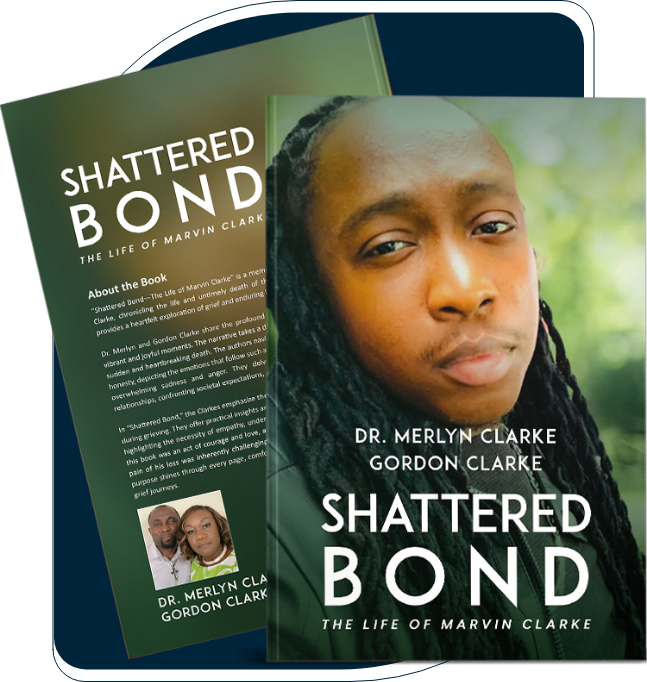Provider Information
Practice Name: Merlyn Clarke INC
Doctor Name: Merlyn Clarke, DNP, APRN-BC, FNP-BC, PMHNP-BC, PMHNP-C, and Daniel Olivero, MD
Doctor Gender: both
# of doctors in the practice: 2 Specialty: Health Consultations Website: https://drmclarke.com/ Location: Atlanta, GA
Publishing Month: May
References:
https://www.samhsa.gov/data/sites/default/files/NSDUH%202023%20Annual%20Release/2 023-nsduh-main-highlights.pdf
https://nida.nih.gov/publications/drugfacts/understanding-drug-use-addiction https://share.upmc.com/2015/12/how-drug-addiction-happens/ https://nida.nih.gov/research-topics/trends-statistics/overdose-death-rates#Fig1 https://nida.nih.gov/research-topics/parents-educators/lesson-plans/mind-matters/opioids https://www.medicalnewstoday.com/articles/opioid-effects-on-the-brain
Title: Understanding Drug Use and Addiction
Promo: Millions of people suffer from addiction, struggling with symptoms that take a toll on virtually every aspect of their lives and the lives of their loved ones. Here, learn how addiction happens and how holistic treatment can help you recover.
Blog:
Nearly 50 million Americans deal with substance use disorder every year, including abuse of alcohol and both illicit and prescription drugs. More than 100,000 Americans die as a result of a drug overdose, according to data from the CDC.
Drug addiction isn’t simply a bad habit or a matter of willpower. It’s a deeply rooted problem that affects the way your brain works and responds, triggering both physical and psychological dependencies that can be nearly impossible to shake without professional care.
At Merlyn Clarke IN our successful addiction treatment relies on a holistic approach that addresses the root causes of addiction as well as its unique and powerful impacts on your body and mind.
In this post, Merlyn Clarke, DNP, APRN-BC, FNP-BC, PMHNP-BC, PMHNP-C, and Daniel Olivero, MD, provide a brief overview of the addiction cycle, underscoring the importance of seeking medical treatment as early as possible.
Drug use and your brain
It’s important to note that drug addiction doesn’t happen overnight. It’s a more gradual process that develops and intensifies over time, beginning with its impacts on your brain, specifically, your reward and pleasure centers.
Our brains rely on a network of nerves to communicate and process data, including our moods and reactions. Special chemicals, called neurotransmitters, carry messages along this network.
Some of these chemicals transmit positive feelings associated with the brain’s reward system, providing intense feelings of pleasure and satisfaction that, in turn, reinforce the behaviors that cause them.
Drugs like opioids work by mimicking those pleasure-reward responses, binding with the same nerve receptors as the neurotransmitters our brain produces naturally, but with one key difference: Opioid medications are far more potent than anything our body produces naturally.
Increasing physical cravings
As the brain associates increased positive rewards with the drug, it produces fewer natural neurotransmitters, making your brain more dependent on the drug to elicit and experience those positive responses. Over time, your brain requires more of the drug to achieve the same euphoric responses, triggering increased cravings and, ultimately, addiction.
Eventually, your brain becomes so accustomed to the presence of the drug that it struggles to function without it. When use stops, withdrawal symptoms – ranging from anxiety and nausea
to severe pain and even life-threatening reactions – can make recovery feel impossible without medical intervention.
The physical and emotional responses to drug use and addiction can be subtle at first, growing more noticeable as use and abuse continue. In addition to mounting cravings for the drug, symptoms can include:
- Mood or behavior changes
- Withdrawal from social activities
- Changes in weight or appetite
- Changes in sleep
- Agitation, restlessness, or irritability
- Neglect of personal hygiene
It’s not uncommon to spend more time engaged in secretive behaviors in an attempt to hide drug use from friends and family.
Breaking the cycle with holistic treatment
Dr. Clarke and Dr. Olivero offer comprehensive treatment for substance use disorder and the mental health challenges that often accompany it.
Treatment plans are multifaceted and typically include a combination of:
- Therapy to identify and address the underlying emotional triggers of addiction
- Support groups to provide connections with others who share similar struggles
- Medications aimed at managing withdrawal symptoms and curbing cravings
- Medications to treat underlying mental health issues, like depression
- Self-care practices to promote healing, strengthen coping skills and increase emotional resilience
And of course, you’ll have regular check-ins to assess your progress, discuss challenges and concerns, and help you stay on track toward recovery.
Our team serves patients in Georgia, New York, New Mexico, Connecticut, Delaware, Florida, Oklahoma, Kentucky, Colorado, and New Hampshire. If you’re struggling with substance abuse, take the first step toward breaking the cycle: Request an appointment today with the team at Merlyn Clarke INC.


